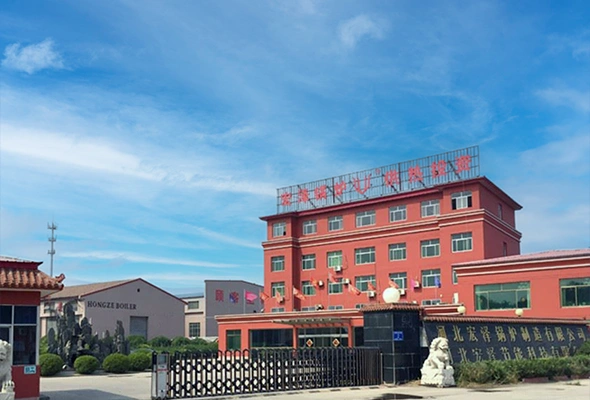
Oct . 19, 2024 18:30 Back to list
high pressure boiler types
Types of High Pressure Boilers
High pressure boilers are essential components in many industrial processes and power generation systems. They operate under considerable pressure, and their efficiency and design are crucial for the safe and effective production of steam. This article will explore the various types of high pressure boilers, their operational principles, and applications.
1. Fire-Tube Boilers
Fire-tube boilers are one of the most common types of boilers used in various industries. In these systems, hot gases produced from combustion pass through tubes surrounded by water. The heat from the gases is transferred to the water, which converts into steam. Fire-tube boilers are typically used for lower pressure applications, but modifications can allow them to operate at higher pressures. They are known for their simplicity, ease of operation, and ability to meet moderate steam demand.
Advantages of fire-tube boilers include lower initial costs and ease of maintenance. However, their limited capacity and longer response times to variations in steam demand can be drawbacks in high-pressure situations.
Water-tube boilers differ significantly from fire-tube boilers in design and operation. In water-tube boilers, water flows through tubes, and the heat from the combustion gases surrounds these tubes. This design allows for higher pressure operations, with many water-tube boilers capable of exceeding 1,000 psi (68.9 bar).
These boilers are usually more efficient and can respond quickly to changes in steam demand, making them ideal for power plants and large industrial applications. The arrangement of the tubes allows for better heat transfer and quicker steam production. Despite their advantages, water-tube boilers require a more complex design and higher initial investment compared to fire-tube boilers.
3. Superheated Steam Boilers
Superheated steam boilers are specifically designed to produce steam at superheated conditions, meaning the steam temperature exceeds 100°C at atmospheric pressure. They are commonly found in power plants and process industries where high temperature and high-pressure steam are necessary for efficiency and productivity.
high pressure boiler types

The main benefit of superheated steam is its ability to improve thermal efficiency and reduce moisture content in steam, which can enhance turbine performance in power generation. However, the design complexity and cost of superheated steam systems can be significant, requiring careful engineering and materials that can withstand high temperatures and pressures.
4. Electric Boilers
Electric boilers utilize electricity instead of fossil fuels or other combustion methods to heat water and produce steam. They are often used in situations where clean and efficient steam production is necessary. Electric boilers can operate at high pressures and are suitable for various applications, including small-scale industrial processes and commercial heating systems.
The advantages of electric boilers include low emissions and high efficiency. However, their operational costs can be higher depending on electricity prices and availability, limiting their use in some regions.
5. Multifuel Boilers
Multifuel boilers are versatile systems designed to burn various types of fuel, including coal, oil, natural gas, and biomass. These boilers are becoming increasingly popular due to their flexibility in fuel selection, which can help industries adapt to changes in fuel availability and prices.
In high-pressure applications, multifuel boilers must be carefully designed to handle the different combustion characteristics and efficiency levels of various fuels. The ability to switch between fuels can significantly enhance operational resilience, making multifuel boilers a smart choice for many industrial facilities.
Conclusion
In conclusion, high pressure boilers play a pivotal role in numerous industries, from power generation to manufacturing. Understanding the different types of high pressure boilers and their applications is crucial for selecting the appropriate system for a specific need. Each type of boiler has its strengths and weaknesses, and the decision should be based on factors such as operational requirements, fuel availability, efficiency, and cost considerations. As technology advances, the efficiency and performance of these boiler systems continue to improve, offering better solutions for energy production and management.
-
High-Efficiency Commercial Oil Fired Steam Boiler for Industry
NewsJul.30,2025
-
High-Efficiency Biomass Fired Thermal Oil Boiler Solutions
NewsJul.30,2025
-
High Efficiency Gas Fired Thermal Oil Boiler for Industrial Heating
NewsJul.29,2025
-
High-Efficiency Gas Fired Hot Water Boiler for Sale – Reliable & Affordable
NewsJul.29,2025
-
High Efficiency Biomass Fired Hot Water Boiler for Industrial and Commercial Use
NewsJul.29,2025
-
High-Efficiency Biomass Fired Hot Water Boiler for Industrial Use
NewsJul.28,2025
Related PRODUCTS






















